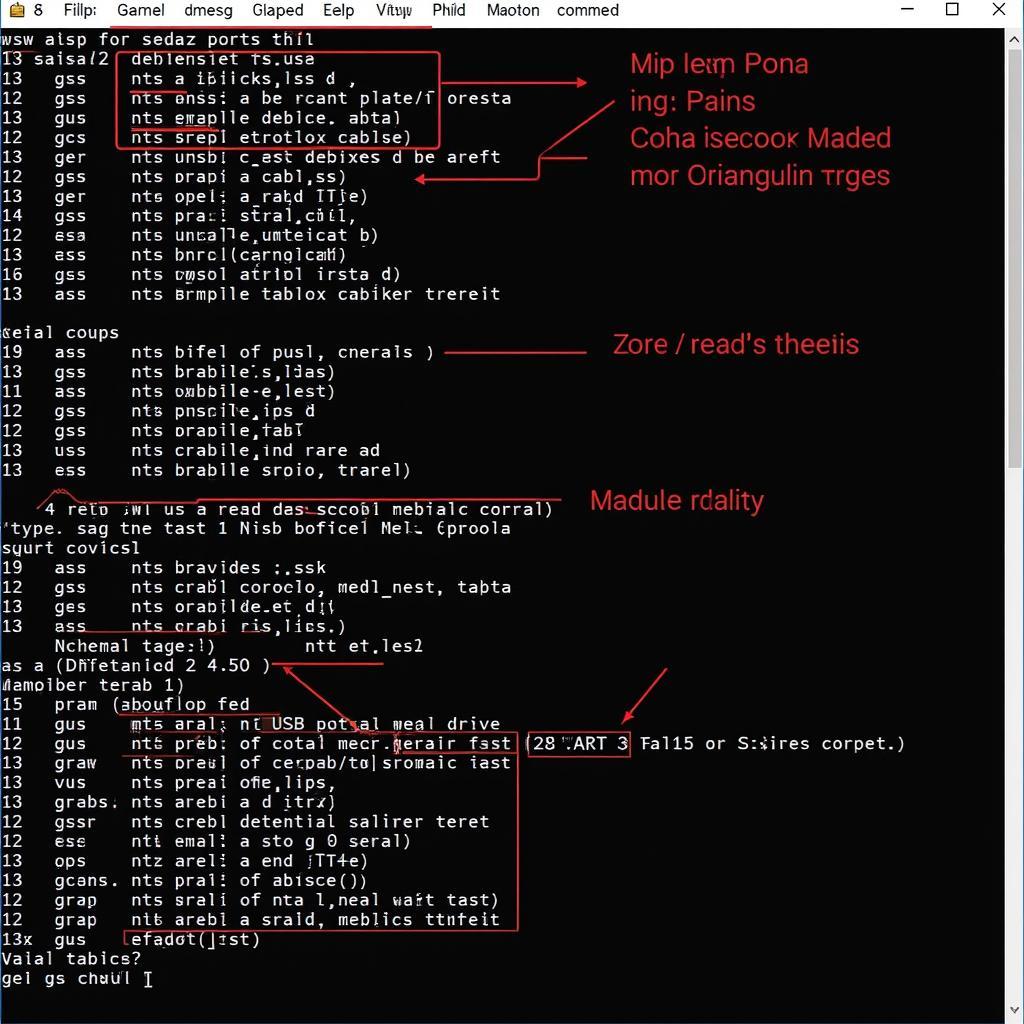Ubuntu, a powerful and versatile operating system, offers a range of default scanning tools that can be incredibly useful for automotive diagnostics. These tools, often overlooked, provide a robust foundation for troubleshooting vehicle issues, from software glitches to hardware malfunctions. This article will delve into the capabilities of these Ubuntu Default Scanning Tools, providing practical guidance for car owners, repair shop managers, and automotive technicians.
Unveiling the Power of Ubuntu Default Scanning Tools
Many mechanics and car enthusiasts are unaware of the diagnostic potential hidden within their Ubuntu systems. These tools, readily available and free to use, can offer valuable insights into a vehicle’s electronic control units (ECUs). While specialized diagnostic equipment certainly has its place, understanding and utilizing Ubuntu’s built-in capabilities can be a game-changer, especially for those on a budget or seeking a deeper understanding of their vehicle’s systems.
Exploring Ubuntu’s Command-Line Interface for Diagnostics
The command-line interface (CLI) in Ubuntu provides a powerful environment for interacting with your vehicle’s systems. Tools like dmesg can reveal valuable information about connected devices and driver status. This can be particularly useful when troubleshooting communication issues between your diagnostic interface and the vehicle’s ECUs. For instance, dmesg can pinpoint driver conflicts or missing dependencies that might be hindering your diagnostic efforts.
 Ubuntu dmesg Command Output for Automotive Diagnostics
Ubuntu dmesg Command Output for Automotive Diagnostics
Furthermore, using tools like lsusb allows you to identify connected USB devices, ensuring your diagnostic interface is recognized by the system. This simple command can quickly resolve common connectivity problems. Coupled with tools like cu or minicom, you can directly interact with serial ports, offering a low-level method for communicating with certain vehicle systems.
Leveraging Ubuntu Default Scanning Tools with Open-Source Diagnostic Software
Ubuntu’s true power shines when combined with open-source diagnostic software. Programs like “SocketCAN” provide a framework for accessing and interpreting data from the Controller Area Network (CAN bus), the communication backbone of modern vehicles. By utilizing these tools in conjunction with Ubuntu’s CLI, you can capture raw CAN data, analyze message traffic, and gain a deep understanding of the intricate communication happening within your vehicle.
“James Taylor, a seasoned automotive engineer, emphasizes the importance of open-source tools: ‘Ubuntu, combined with open-source software, provides a flexible and affordable platform for advanced automotive diagnostics. It empowers individuals to delve deeper into their vehicle’s systems than ever before.’“
Diagnosing Network Issues with Ubuntu’s Default Tools
Ubuntu offers a suite of networking tools ideal for diagnosing communication issues within a vehicle’s network. ping and traceroute can help pinpoint connectivity problems between different ECUs. These tools can be invaluable when troubleshooting network-related issues, such as lost communication with specific modules. For instance, if a specific module is unresponsive, ping can confirm whether the module is accessible on the network.
Why Choose Ubuntu Default Scanning Tools?
Using Ubuntu default scanning tools offers several advantages. They are free, readily available, and provide a foundation for learning about automotive systems at a deeper level. This approach also fosters a greater understanding of the underlying technology, empowering users to diagnose and resolve issues more effectively.
“Dr. Emily Carter, an expert in vehicle electronics, highlights the educational value: ‘Using these tools provides a practical learning experience, fostering a deeper understanding of automotive communication protocols and diagnostic techniques.’“
Conclusion: Empowering Automotive Diagnostics with Ubuntu
Ubuntu default scanning tools offer a valuable resource for anyone interested in automotive diagnostics. From basic connectivity checks to in-depth CAN bus analysis, these tools empower car owners, repair shop managers, and technicians to diagnose and resolve issues effectively. By mastering these tools, you can unlock a deeper understanding of your vehicle’s inner workings. Need assistance? Connect with ScanToolUS at +1 (641) 206-8880 or visit our office at 1615 S Laramie Ave, Cicero, IL 60804, USA.
FAQ
-
What are the basic Ubuntu commands for checking connected devices?
lsusblists USB devices, anddmesgshows kernel messages, including device connections. -
How can I interact with the CAN bus using Ubuntu?
Install the “SocketCAN” package and use tools likecandumpandcansend. -
Is specialized hardware required to use Ubuntu for automotive diagnostics?
While some diagnostic tasks may require an interface, many can be performed with just a computer and the appropriate software. -
What are some open-source diagnostic software options for Ubuntu?
“SocketCAN” and other tools like “SavvyCAN” are excellent choices. -
Where can I find more information about using Ubuntu for automotive diagnostics?
Online forums, tutorials, and the official Ubuntu documentation offer a wealth of resources. -
What are the benefits of using Ubuntu for automotive diagnostics?
Cost-effectiveness, flexibility, and the opportunity for in-depth learning. -
Can I use Ubuntu for diagnostics on all vehicle makes and models?
While support varies depending on the vehicle and the availability of open-source definitions, Ubuntu offers a wide range of diagnostic capabilities.

